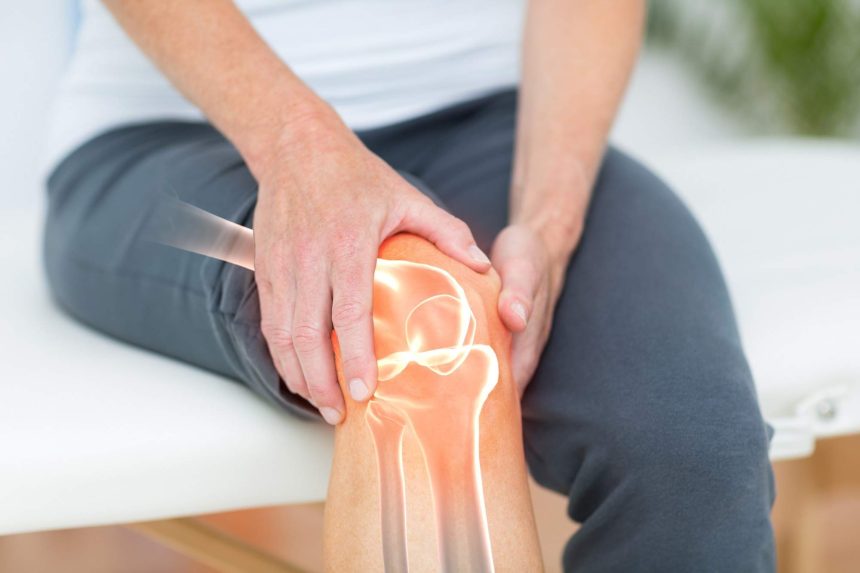Do you ever find yourself grimacing as you step off the stairway, or experience discomfort when climbing up an incline? If so, it could be a sign that something is amiss with your knees. And while we’re all familiar with minor knee issues—ranging from mild aches and pains associated with physical exertion to sports-related strains—too many of us don’t take knee concerns seriously enough.
But left unaddressed they can have significant consequences: long-term damage caused by underlying indicators may ultimately lead to chronic pain and even serious illness down the line. In today’s blog post, I’ll discuss why it’s important to address knee concerns promptly in order to avert greater problems later on.
Addressing knee concerns
Ignoring knee concerns is not just a minor inconvenience, it can lead to significant long-term damage if not addressed properly. The knees are critical joints that play a crucial role in our movements and allow us to perform daily activities with ease. Neglecting knee issues such as pain, stiffness or swelling can lead to more severe injuries and chronic conditions such as arthritis or torn ligaments.
Therefore, it is essential to address any knee concerns in their early stages before they evolve into larger, more complex problems. Taking prompt action can help prevent long-term damage and ensure a healthy and pain-free life. Remember, our knees are vital, so let’s give them the attention they deserve. For example, a revised knee replacement surgery can help patients restore mobility and reduce their risk of more serious issues down the road. On the other hand, poor knee health can lead to other complications such as diabetes, heart disease, or even stroke.
Types of Knee Injuries
As an athlete, it can be devastating to realize you’ve injured your knee – the joint that enables you to run, jump, and pivot. There are a variety of knee injuries that can occur – from ACL tears to meniscus tears to patellar tendinitis. It’s important to recognize the type of injury you have and seek proper treatment to avoid further damage or chronic pain.
Treatment options may range from rest and physical therapy to surgery, depending on the severity of the injury. Plus, many knee injuries can be prevented by learning proper stretching and conditioning techniques and taking the necessary precautions to protect your knees while participating in sports.
Common Issues That Can Lead to Knee Pain
Knee pain is one of the most common ailments that people experience, and it can be caused by a variety of factors. The knee is one of the body’s largest and most complex joints, which means that it is susceptible to a lot of wear and tear over time. Some common issues that can lead to knee pain include overuse injuries, such as the runner’s knee or patellar tendinitis, as well as arthritis, bursitis, and other inflammatory conditions.
Additionally, people who are overweight or who engage in high-impact activities such as basketball or soccer may be at greater risk for knee pain. Regardless of the cause, knee pain can be a frustrating and debilitating condition, but there are many treatment options available to help alleviate your symptoms and get you back to your normal activities.
Exercise Routines for Strengthening Your Knees
As we age, the risk of knee injuries and pain increases, making it crucial to implement exercise routines that strengthen this vital joint. Strengthening the muscles around the knee joint can help prevent injuries and relieve any discomfort you may be experiencing. Low-impact exercises, such as cycling or swimming, are fantastic choices for those with knee issues.
Yoga and Pilates are also excellent for building strength and flexibility in the knee and surrounding muscles. Another important aspect of knee health is maintaining proper form during exercise, especially when lifting weights. By implementing these relevant exercise routines, you can help keep your knees strong and pain-free for years to come.
Tips on How to Prevent Further Injury to Your Knees
The first tip is to maintain a healthy weight through exercise and nutrition, as excess weight puts unnecessary stress on the knees. Secondly, focus on exercises that strengthen the muscles surrounding the knees, such as squats and lunges. Thirdly, make sure to wear proper footwear with adequate support and cushioning. Lastly, listen to your body and don’t push yourself too hard, as overexertion can lead to injury.
Addressing knee concerns and finding ways to prevent further injury is essential for long-term health. Knee discomfort can range from mild pain to severe injuries, and you should pay attention to any signs of knee problems or persistent pain. Exercise and strengthening the muscles around your knees are important components in prevention and treatment, as is properly fitting equipment and shoes.
Taking precautions like these can help lessen the long-term effects of an untreated issue or prospective trauma, and should be a regular part of any wellness routine. Making it a priority to approach knee concerns early on can make all the difference in avoiding extensive damage or dysfunction down the road—it’s better safe than sorry! With that said, if you do have knee pain that’s worrisome, please don’t hesitate to see your doctor for advice as soon as possible.















